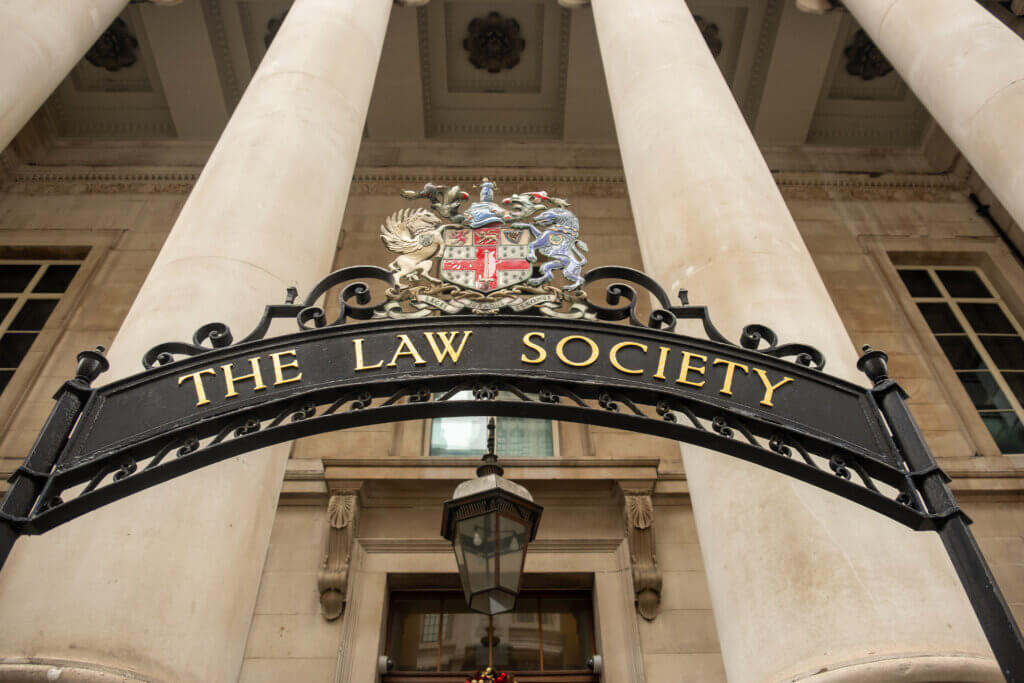If you’ve started (or are thinking about starting) a personal injury or medical negligence claim, you might want to start asking the following question of the personal injury solicitors firm you are thinking of asking to handle your claim: Who is actually allowed to run my court case?
A recent High Court decision – Mazur v Charles Russell Speechlys [2025] EWHC 2341 (KB) – has put that question under a very bright spotlight. In a nutshell, the court said that only an “authorised person” (for example, a qualified solicitor with a current practising certificate) can conduct litigation. Being employed by a law firm isn’t enough, even if the person is supervised.
Trying to understand the points raised by a judgment in a legal case can be a difficult task – rest assured it is for us, too. So, below is a plain-English guide to what Mazur is about, why it affects clients, and why Mooneerams’ way of working already aligns with what the court expects.
First, what does “conducting litigation” mean?
Think of a claim in two broad stages:
- Pre-action (before court proceedings are formally started) investigations, letters of claim, obtaining medical evidence, drafting witness statements, negotiation.
- Litigation once proceedings are actually issued at court.
In an earlier case (Baxter v Doble [2023]) the court explained that steps taken before issuing court proceedings do not amount to the “conduct of litigation”.
That means trainee solicitors, paralegals, legal executives (more on that later) and other support staff can help progress cases pre-action. However, issuing proceedings and running the case after issuing, such as deciding strategy, signing and lodging with the court legal documents, having conduct of the file, are reserved legal activities and must be done by someone authorised to do it – a qualified solicitor who holds a current practising certificate.
Mazur confirmed that unauthorised employees can assist an authorised solicitor (drafting, collating evidence, preparing bundles, etc.), but they cannot conduct the litigation themselves unless they personally hold the right to do so. Supervision doesn’t make an unauthorised person into an authorised one.
Why should clients care?
In some ways you could say this is all very odd (and you would be right) but equally surely something that is only of importance within the legal sector. Not so. The rulings in Mazur go to the heart of who is legally responsible for your case, especially once court proceedings are issued.
- Making it legal so as to protect the client
The Legal Services Act 2007 makes “conduct of litigation” a reserved legal activity. Doing it when you’re not entitled to is a criminal offence and may even end up in the person conducting litigation when they aren’t authorised, in contempt of court. As a client you deserve to know that the person with “conduct” of your case is properly authorised.
- Costs risks
If work has been carried out by someone who wasn’t entitled to conduct litigation, there may be arguments over whether the other side should pay for that work, or whether those costs can be recovered at all.
- Clarity on roles
Plenty of law firms rely on a mix of qualified solicitors and experienced support staff (often called litigation executives, paralegals or similar). That’s fine provided the qualified solicitor actually has conduct of the litigation once the claim is issued, and support staff are assisting rather than running the claim. Mazur draws that line.
What if your case is currently handled day-to-day by a non-solicitor?
Don’t panic. Lots of perfectly proper, client-facing work can be done by non-qualified team members (and often very efficiently), especially pre-action. What matters after issue is that your authorised solicitor is the decision-maker, signs off key steps, and is the named person with conduct of your case. If you’re unsure, ask these practical questions:
- Who is the authorised person with conduct of my case?
- Who decides when to issue, how the case will be run, and whether to advise settlement or going to a court hearing?
- Who signs the court documents?
- How is supervision recorded (file notes, approvals etc)?
A firm that is compliant will answer those questions without second thought.
Where does this leave chartered legal executives and other experienced fee-earners?
Many CILEX members are highly skilled and, quite understandably, feel angry and distraught by the current uncertainty. The Law Gazette reported that CILEX’s public guidance changed in December 2023 and that the profession is seeking clearer, consistent rules.
After Mazur, CILEX has confirmed that members who are not authorised for litigation cannot conduct it under supervision, though they can assist an authorised colleague. While further advice and guidance is awaited, it does little to allay the fears of those who have worked so hard to qualify as Legal Executives.
The Law Society has also asked the Solicitors Regulation Authority to clarify the implications of Mazur quickly, because law firms need certainty.
What counts as “assisting” (usually fine) vs “conducting” (must be authorised)?
Every case is different, but certain procedures are common to most cases:
Generally fine for non-solicitors (assisting an authorised solicitor):
- Gathering medical records, police reports, or witness details
- Drafting documents on instruction from the solicitor having conduct (claim forms, particulars, schedules) and only being sent off with the solicitor’s approval
- Preparing instructions to experts or counsel for the solicitor to sign off
- Liaising with the court to fix dates when directed
Likely to cross the line into “conducting litigation”:
- Deciding when to issue proceedings and what to plead
- Being the decision-maker on tactics, evidence and settlement after issue
- Signing and filing key court documents as if they have conduct
- Presenting themselves (to you, to the other side, or to the court) as the person running the litigation
The “who decides?” test is a helpful rule of thumb for clients.
Does this affect pre-action injury claims in the portals?
Less so. Pre-action portal work is not “conduct of litigation” in itself. Many firms will continue to use skilled non-solicitor fee-earners to progress these claims up to the point where court action is needed. If your case needs issuing, an authorised person must then take the reins.
What could go wrong if the rules aren’t followed?
- Challenges in respect of paying costs (arguments that work was done by someone not entitled to do it).
- Avoidable delay if the court queries who actually has conduct.
- Regulatory headaches for the firm
All of this can be solved with proper structures: clear allocation of “conduct” to an authorised solicitor, proper sign-offs, and transparent communication with you about the roles of the individuals who are working on your case .
How Mooneerams already works in a compliant manner (and why that should reassure you)
At Mooneerams, all court proceedings are conducted by qualified solicitors with current practising certificates. Our experienced non-qualified team members assist and support – they draft, chase, organise, and keep things moving – but the authorised solicitor makes the litigation decisions and signs off the key steps. That model is fully in line with the position confirmed in Mazur.
What you can do today (a quick client checklist)
If you have an ongoing case with another firm and you’re uneasy after reading about Mazur, consider asking:
- Who is the authorised person with conduct of my litigation?
- Can I see where they have approved the pleadings and key steps?
- If my case was issued, when did the authorised person take conduct?
- How are roles explained to the court and the other side?
Clear answers here are a good sign that everything is in line with the existing rules.
Will the position change again?
Very probably. The judgment has prompted heated debate in the profession already, and there may be appeals or rule changes in the near future. The Law Society is engaging with the SRA, and practitioners are pushing for clarity, including potential ways legal executives can obtain rights to conduct litigation more easily. For now, though, Mazur is the binding position: no conduct of litigation by unauthorised staff, even under supervision.
Note: This article uses terms from the Legal Services Act 2007 and recent case law, including Mazur v Charles Russell Speechlys and Baxter v Doble, to explain when an “authorised person” must take conduct of litigation and how support staff can assist appropriately.
Image use: Mooneerams – stock.adobe.com
Posted in Personal Injury Claims










